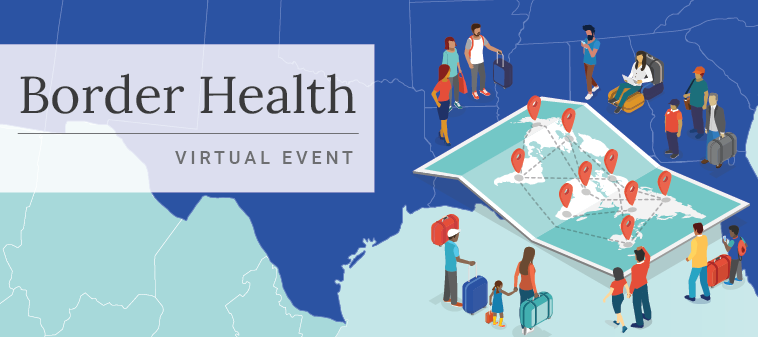Twitter: Follow @Health_Affairs live during the event, and join the conversation with #BorderHealth
In a country where one-in-seven residents is an immigrant, and about 15 million people live within 100 kilometers of the US-Mexican border, there are significant disparities in health status between people born in the US and those who have immigrated, and the demographics are changing constantly. The July 2021 thematic issue of Health Affairs takes an intensive look at the policy issues related to immigrants, borders, and health. Articles describe current migration trends sand supply new data analysis and commentary on how policies can address disparities and ease the disproportionate health burden borne by immigrants.
Border Health: Evidence & Policy Issues
Monday, July 12, 2021, 1:30-3 pm (EDT)
On Monday, July 12, Health Affairs Editor-in-Chief Alan Weil hosted an event focused on health and health policy on both sides of the US-Mexico border. Authors presented research on topics including life expectancy of populations who have crossed the border, insurance coverage statistics for adults and children, trauma and safety issues for those faced with expedited expulsion from America to the Northern Triangle, and the effects of COVID 19 on immigrants and asylum seekers. The event also featured a high-level conversation with well-known experts on the broader issues policy makers, including the new American president, are confronting every day.
Presenters (in alphabetical order):
- Ietza Bojorquez-Chapela, Professor-Researcher, El Colegio de la Frontera Norte, on “In-Transit Migrants And Asylum Seekers: Inclusion Gaps In Mexico’s COVID-19 Health Policy Response”
- Sharon Borja, Assistant Professor, Graduate College of Social Work, University of Houston, on “Health Insurance Access Among U.S. Citizen Children in Mexico: National and Transborder Policy Implications”
- Arturo Vargas Bustamante, Professor of Health Policy and Management, UCLA Fielding School of Public Health
- Xóchitl Castañeda, Founding Director, Health Initiative of the Americas, School of Public Health, University of California Berkeley
- Hilda Dávila Chávez, former Director General of International Relations, Secretaria de Salud, Mexico; US-Mexico Border Health Commission delegate; and Seminario de Estudios de la Globalidad, Universidad Nacional Autónoma de México
- Nicholas Cuneo, Assistant Professor of Pediatrics, Johns Hopkins School of Medicine, on “What Counts As ‘Safe’?: An Analysis Of Forensic Evaluations From Northern Triangle Of Central America Asylum-Seekers”
- Rodrigo Dominguez-Villegas, Director of Research, Latino Policy and Politics Initiative, UCLA, on “Health Insurance Coverage In Mexico Among Return Migrants: Differences Between Voluntary Return Migrants And Deportees”
- Sandra Hernández, President and CEO, California Health Care Foundation
- Elizabeth A. Pollock, Assistant Scientist, University of Wisconsin Population Health Institute, University of Wisconsin–Madison, on “Life Expectancy at the US-Mexico Border: Evidence of Place- and Race-based Disparities”
Health Affairs is grateful to Arturo Vargas Bustamante of UCLA Fielding School of Public Health who served as theme issue adviser, and thanks the California Health Care Foundation, The California Endowment, and Con Alma Health Foundation for their financial support of this issue.

